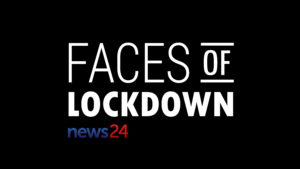Heinz-Christian Strache, the leader of Austria’s right-wing populist FPÖ party, met with purported Russian multimillionaire in Ibiza on July 24, 2017. She offered him campaign support in exchange for public contracts.
What he didn’t know was that the entire exchange was staged and recorded by hidden cameras.
The video was created three months before Austria’s general election that October. Following the election, Heinz-Christian Strache would rise to become the country’s vice-chancellor.
The video shows Strache and fellow party member Johann Gudenus, deputy mayor of Vienna at the time, meeting with a woman in a luxurious holiday villa on the Spanish island of Ibiza. She was introduced to them as Alyona Makarova, the purported niece of
Igor Makarov, a Russian oligarch close to President Vladimir Putin. The elegant woman could conduct business practically anywhere she wanted with her ‘Latvian’ passport.
The supposed investor who offered to invest a hundred million euros into their partnership already had a plan.
She proposed acquiring a 50 per cent stake in a highly influential Austrian tabloid, the Kronen Zeitung, to use the newspaper as a mouthpiece backing Strache and his party in the election campaign.
Strache, dressed casually in a T-shirt and jeans, seemed enthusiastic – mostly about the proposal, but also about the woman herself. “Are you kidding? She’s hot,” he said, with a Viennese lilt.
Strache spoke for more than six hours with the woman, alternately whispering and roaring, lecturing and gesticulating.
“As long as I’m not dead,” Strache said at one point, “I’ll be in charge for the next 20 years.”
Ultimately, a deal took shape in that room in the Ibiza villa on that July day in 2017: Russian money of uncertain origin would help boost the FPÖ’s election results. And it goes without saying that the woman purporting to be Alyona Makarova would also get something out of it.
The Russian woman’s apparent confidant said her money wasn’t “actually entirely legal” and described the deal as “legally tricky.”
That night, switching between Russian and English, she repeatedly asked what she would get in return after the election if, as planned, Strache were to become part of the government. The woman had a confidant at her side in the villa, a middle-aged man in white trousers and a blue shirt, who did most of the talking when it came to the sensitive negotiations. He demanded, in German, that they be granted the kind of blatant financial advantages that only a government can provide.
But Heinz-Christian Strache, who is fond of presenting himself as the man cleaning up Austrian politics, didn’t stand up and leave as one might have expected him to do in such a situation.
Instead, while he repeatedly emphasized during the conversation that he was only available for legal deals, he would quickly turn around and agree to proposals that, if implemented, would clearly be illegal.
The matters discussed included the question of whether the FPÖ, if it became part of a coalition government, would be in a position to award artificially inflated government contracts to the purported Russian.
They also talked about the possibility of the Russian woman making a donation to the FPÖ party that could be concealed by way of an association.
The Russian woman’s apparent confidant said her money wasn’t “actually entirely legal” and described the deal as “legally tricky.” And yet that still didn’t prompt Strache and Gudenus to leave. The confidant said the Russian woman’s dealings were in “an illegal space.” Strache and Gudenus remained seated.
The full length of the meeting is documented in the video, sober viewing that raises deep moral questions.
More than six hours that covered not only backroom deals, but also the overarching goal of creating a tamed Austrian media landscape similar to the Hungarian model.
Did Strache or Gudenus report to the authorities the next day that someone had attempted to bribe them? Or that illicit money was to be smuggled into Austria?
Requests for responses to those questions sent by Süddeutsche Zeitung and news weekly Der Spiegel were left unanswered.
“As long as I’m not dead,” Strache said at one point, “I’ll be in charge for the next 20 years.”
In a message to Süddeutsche Zeitung and Der Spiegel, Strache and Gudenus did not deny having been in that villa, but stress that it was a “strictly private meeting”.
Ibiza, an oligarch’s niece, millions and millions of euros and a major newspaper?
Even by the standards of Austrian politics – which has a penchant for absurdist drama – it is a rather audacious scenario. Too audacious to be real, in fact. Strache and Gudenus, it turns out, had been lured into a trap. Apparently, someone wanted to test how they would react to such a tempting offer.
The purported Russian wasn’t the niece of oligarch Makarov, who actually is a real person. Nor is it likely that she had hundreds of millions of euros at her disposal. She was simply acting as a decoy.
Neither Der Spiegel nor the Süddeutsche Zeitung have any reliable information about the motives of the people who set Strache this trap in 2017 or who they may have been working for.
But one thing is clear following the evaluation of the material and verification of its authenticity by two experts: It is in the public interest to know how Strache and Gudenus, high-ranking representatives of the Austrian government and of their party, responded to dubious advances from a purported oligarch.
This story by Leila Al-Serori, Oliver Das Gupta, Peter Münch, Frederik Obermaier and Bastian Obermayer was originally published online by Süddeutsche Zeitung on 17 May 2019 .
The meeting in Ibiza appears to have served the sole purpose of deceiving Strache and Gudenus in a professionally staged and technically elaborate spectacle. Hidden cameras and microphones were installed in the villa in light switches and in a mobile phone charging station. The microphones recorded almost every word spoken. The Süddeutsche Zeitung and Der Spiegel both obtained parts of the video and audio recordings and analysed them together. However, the newspaper paid no money for the material, and neither did Der Spiegel, according to the magazine. To verify the veracity of the video, Süddeutsche Zeitung obtained photos of an invoice showing the villa was booked from July 22-25, 2017. An expert hired by the Süddeutsche Zeitung confirmed that the photos advertising the villa on the booking website show the same rooms that can be seen in the hours of video footage.
Hidden cameras and microphones began recording their conversations there.





